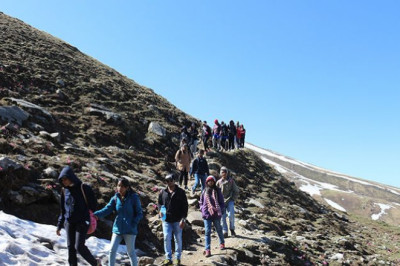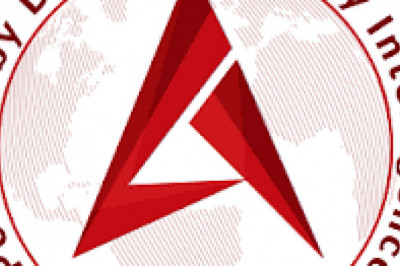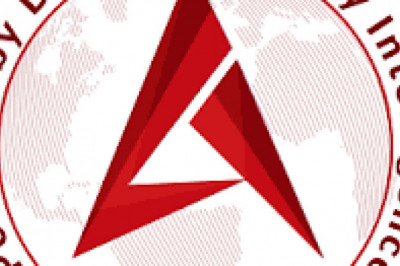views

The global Cruise Travel AI Market is estimated to surpass $12 billion mark by 2026 growing at an estimated CAGR of more than 7.7% during the forecast period 2021 to 2026. As more and more companies adopt AI to improve personalization, it's become vital for customer satisfaction. The COVID-19 pandemic has seriously impacted the cruise industry. It was one of the first industries to be seriously affected, and when many thousands of passengers and crew were stuck on tainted ships around the world, there was a great deal of bad attention. As a result, the sector has suffered substantial reputational loss, and there is a great deal of work to be done to restore customer trust. Nevertheless, studies have shown that cruise passengers are a reliable customer base and are positive about taking a cruise again. Moreover, it is expected that cruise lines will collaborate closely with worldwide public health agencies and CLIA to impose stringent health criteria. It is confirmed that bookings for 2021 are higher than those in 2019. This has also affected cruise companies as the lower revenue has resulted in lower investment on new technology such as AI and IoT which is hindering the cruise travel AI market as well.
Cruise Travel AI Market Segment Analysis - By End Users
Cruise travel companies are increasingly becoming the focal point of Cruise Travel AI deployment. River and small ship cruising, especially the Millennial set, continues to gain popularity among tourists, concentrating on the ever-expanding routes and destination experiences that go well beyond walking and coach tours. A voyage on small ship is a very different experience to the traditional idea of cruising which in turn offers various advantages to the customers thereby boosting the market growth during the forecast period 2021-2026. On board experience on small ships is great. Customers can regard the ship as a personal yacht, and they can be very discreet and self-contained. Around the same point, it is seamlessly easy to get to know fellow guests by almost knowing their names and preferences, telling a joke and chronicling the experience of the days spent. These little ships can go to the tiny ports and harbours that can't even be reached by a large ship, thus the passengers are far closer to the action, and far from the crowds. Sites that tourists can explore could be a long way from the tourist track or the pinnacle in style and sophistication, as people snorkel in the bay in the company of mega yachts and speedboats.
People have a very unique time aboard the bus. Personal standards of service and attention to detail are visible everywhere, as workers get to know every taste and desire, at every minute of the day, second-guessing customer desires. Customers have access to the crew's captain and senior officers, and a delightful contact with fellow passengers of the chosen band. And they're literally closest to the waves, of course, because they really sound like they're at sea, rather than a glamorous hotel floating around.
Request for Sample Report @ https://www.industryarc.com/pdfdownload.php?id=19622
Report Price: $ 4500 (Single User License)
Cruise Travel AI Market Segment Analysis - By Solution Type
Cruise travel technology segment is a growing market with the adoption still largely in the nascent phase. Moreover cruise travel AI is anticipated to witness the significant market growth during the forecast period 2021-2026 with a CAGR of 9.24%. The rising number of innovative services, amenities, themes and others offered in various luxury cruise ships are projected to drive the market growth. A number of leading Cruise companies such as Royal Caribbean and Carnival Cruises have adopted AI technology for improving customer experiences as well as improving customer personalization and itinerary management. Royal Caribbean, in particular, has long been at the forefront of ground breaking cruise ship experiences utilizing cutting edge technology. The company uses computer-vision equipped cameras that can recognise travellers as they board, cutting down the need for verifying identity documents and travel passes manually. Other applications include personalised recommendations as well as monitoring and managing footfall for services.
Cruise Travel AI Market Segment Analysis - By Geography
Geographically, North America region is anticipated to witness the significant market growth during the forecast period 2020-2025 with a CAGR of 9.87%. The market growth in North American market is attributed to rapid increase in number of tourists travelling in luxury cruise ships at popular destinations in the U.S., Canada, Mexico, Caribbean Islands, and various other countries across North America. Cruise AI technology has also been deployed in recent years by companies such as Royal Caribbean and Carnival Cruises as a chatbot that employs NLP and machine learning to understand what the most commonly asked questions are, and become more efficient at providing personalised answers. This adoption has been particularly prevalent in North America. However, despite these adoptions, the market for AI in cruise travel is still in the nascent stage.
Cruise Travel AI Market Drivers
Increase in Popularity of Luxury Cruise Tourism in Developing Countries
During the forecast time frame 2020-2025, a dramatic rise in the popularity of luxury cruise tourism in developing countries is expected to generate enormous possibilities for all luxury cruise service providers worldwide. In emerging countries, firms are also preparing to grow their operations in order to capture the region's untapped markets. To boost sales in their premium cruise firms, they offer enticing discounts and introduce special deals or booking schemes. In January 2019, Zen Cruises, the cruise company of the Essel Group, announced that its cruise line, Jalesh Cruises, will operate its first sail from Mumbai in April. Entertainment performances, adventure sports, and tropical authentic cuisines full of foreign hospitality on the high sea will be provided by the multi-destination cruise line. Thus, the growing prominence among developing nations coupled with the offerings provided by the firms propels the market growth. This growth is projected to continue post the Covid-19 pandemic slowdown which is expected to take place towards the latter half of 2021.
Rising Transformational Cruise Travel
The next evolution of experiential tourism, from cultural immersion and volunteering to intense journeys, sees visitors taking a step forward and finding transformative encounters. Modern ships have a world of inventions that create the identities of cruise lines, from sky-diving simulators, ocean biking and autonomous bartenders, to celebrity chef kitchens, butler service and all-suite staterooms, and amenities to fit family members of all generations commuting together or even solo cruising travellers. The amenities and services of cruise ships continue to surpass the needs of an increasing population of passengers, and cruisers can easily locate a cruise line, ship, stateroom and itinerary to suit them. There are 50 vessels on order between 2018-2025 from FCCA and CLIA member cruise lines, representing 220,000 lower berths and an investment volume of more than $51 billion. And most of these vessels, with the average new construction on order, tipping the scales at more than 155,000 GRT with more than 4,000 lower berths, are wide in both features and capacity.
Download Sample Report @ https://www.industryarc.com/pdfdownload.php?id=19622
Cruise Travel AI Market Challenges
Clean Sailing Driven by Regulations
In the wake of the COP21 Paris Agreement, pollution reductions have been high on every industry's agenda. In fact, about 2.5 percent of global greenhouse gas emissions are due to the marine industry as a whole. Different regulatory organisations around the world are implementing stringent rules that are meant to effect maritime activities in an attempt to reduce pollution. In the European Union (EU), for example, new legislation came into effect in 2017 forcing every large vessel docking in an EU port to track and record its CO2 emissions. In China, the government is developing pollution control areas in major shipping ports, with a sulphur limit of 0.5 per cent ahead of the global IMO 2020 regulations. In order to comply with these legislation, maritime operators need to reconsider the most basic facets of their operational models in terms of how they view everything from the construction of the vessel to the operation of the vessel as well as option of fuel and maintenance to act in accordance with the environmental regulations. New technology can incur production and maintenance costs, but they can also offer efficiencies that contribute to a quick return on investment and improve the business position of operators. Alternative renewable fuel, such as LNG, would become more prevalent marine fuel along the green surge. The step is evidenced by Carnival Corporation, which has three LNG-powered cruise ships on its order.
Market Landscape
Product launches, acquisitions, and R&D activities are key strategies adopted by players in the Cruise Travel AI Market. Amadeus IT, mTrip, UTrip, CRS Technologies, Royal Caribbean, eRoam, Sabre Holdings and others are considered to be the key players of the Cruise Travel AI Market.
Acquisitions/Technology Launches/Partnerships
Carnival Cruises used a chatbot that employs NLP and machine learning to understand what the most commonly asked questions are, and become more efficient at providing personalised answers.
Royal Caribbean uses computer-vision equipped cameras that can recognise travellers as they board, cutting down the need for verifying identity documents and travel passes manually.
Key Takeaways
By 2027, 51% of cruise passengers will probably be coming from North America (14% in 2019), 31.5% from Europe (7.17% in 2019) and 17.5% from Asia-Pacific (5.7% in 2019) according to the report of Cruise Industry News.
Tourism has dynamic relationship with the environment and the atmosphere, and there is a perception that climate change will have a major effect on tourism. This will result in a shift to colder climates for cruise travel.
Despite the growing adoptions by major companies such as Royal Caribbean and Carnival Cruises, the market for AI in cruise travel is still in the nascent stage.
Related Reports :
A. Intelligent Transport System Market
https://www.industryarc.com/Report/15024/intelligent-transport-system-market.html
B. Travel and Tourism Market
https://www.industryarc.com/Report/19632/travel-and-tourism-market.html
For more Automotive Market reports, Please click here
About IndustryARC: IndustryARC primarily focuses on Cutting Edge Technologies and Newer Applications market research. Our Custom Research Services are designed to provide insights on the constant flux in the global supply-demand gap of markets. Our strong team of analysts enables us to meet the client research needs at a rapid speed, with a variety of options for your business. Any other custom requirements can be discussed with our team, drop an e-mail to sales@industryarc.com to discuss more about our consulting services











